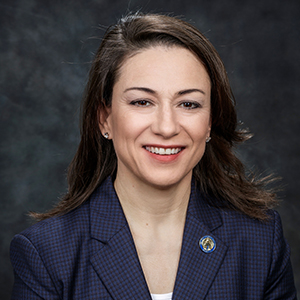
TRENTON, N.J. – Assemblywoman Aura Dunn’s bill requiring public and private higher education institutions in the state to stock a nasal spray that acts as an opioid overdose antidote made it a step closer to becoming law Monday after passing both the Assembly and Senate.
“Having the drug readily available to students experiencing an overdose on college campuses could mean the difference between tragedy and treatment,” Dunn (R-Morris) said. “Recognizing that the opioid epidemic our young people are facing extends well beyond high school is imperative to saving lives.”
State law already requires supplies of opioid antidotes to be maintained by public and private high schools and allows nurses or trained employees to administer the drug in case of an overdose on school grounds. Dunn’s bill (A4852) requires college campuses to stock naloxone hydrochloride nasal spray in at least one secure and accessible location and develop a policy to respond to overdose emergencies.
“From my work on Capitol Hill to the New Jersey General Assembly, I have remained committed to making colleges safer and more responsive to the health needs of the campus community. Addressing addiction and providing emergency medications to reverse overdoses are part of that picture,” Dunn added.
According to security reports issued in compliance with the federal Campus Crime Disclosure Act, which Dunn worked to pass, New Jersey’s five public research universities had nearly 50 drug-related arrests in 2022 and over 70 referrals to campus discipline for drug-related offenses.
The state medical examiner’s dashboard shows 3,124 suspected overdose deaths in 2021, 2,892 in 2022 and 2,565 in 2023. Most of the deaths last year occurred in adults ages 55 to 64, followed by those 35 to 44 years old. Eighty-eight people between the ages of 20 and 24 are suspected of dying from a drug overdose.
“Although drug overdose deaths have been declining in recent years, New Jersey still has a lot of room for improvement. There are millions of opioids in medicine cabinets and on the streets. Reaching people vulnerable to addiction or in crisis is critical. I hope this measure will be signed into law quickly, because New Jersey’s college students deserve to be protected from the deadly consequences of opioids,” Dunn said.
A state database reports that 2,132,703 opioids were prescribed from Jan. 1, 2023 to Aug. 31, 2023 and there were 10,184 naloxone administrations during that time.
